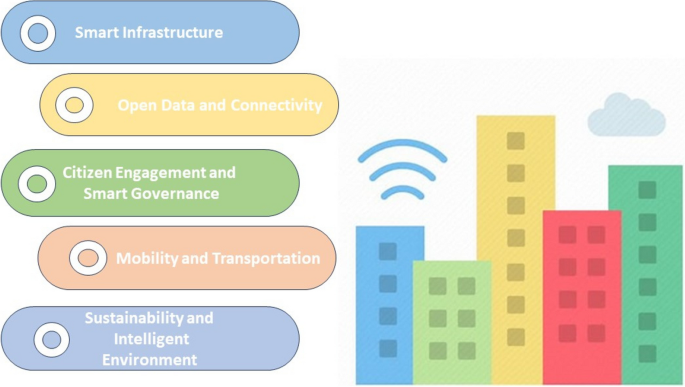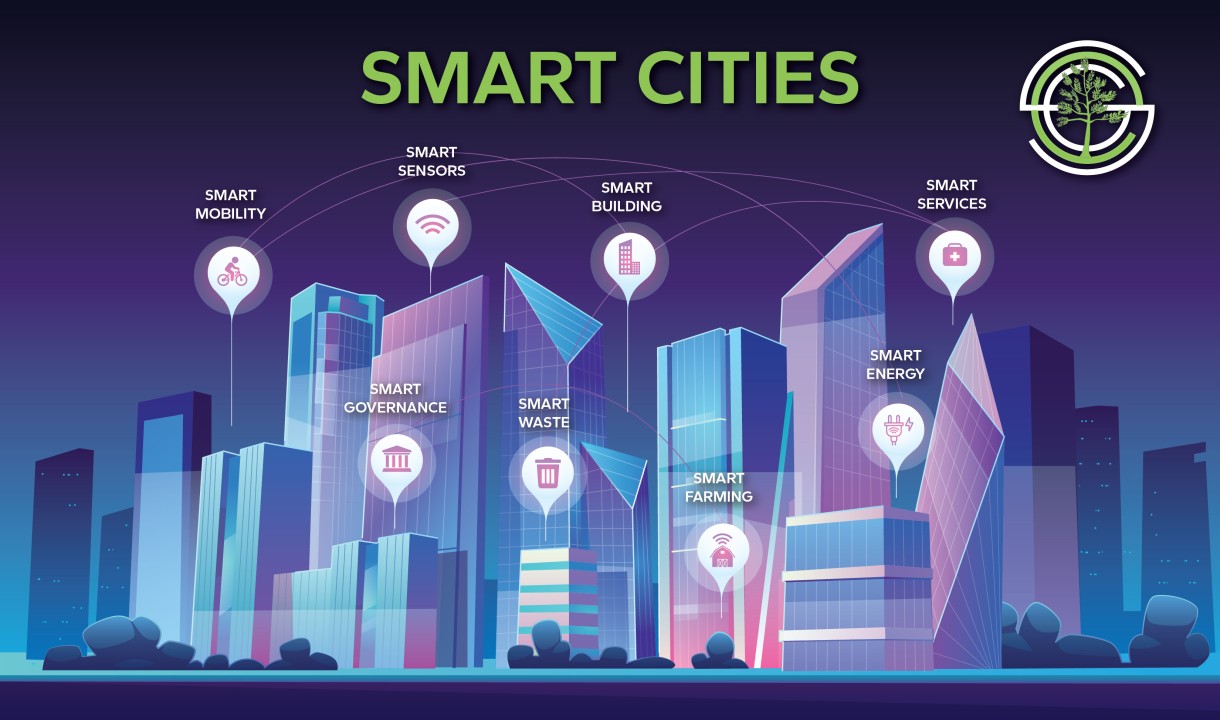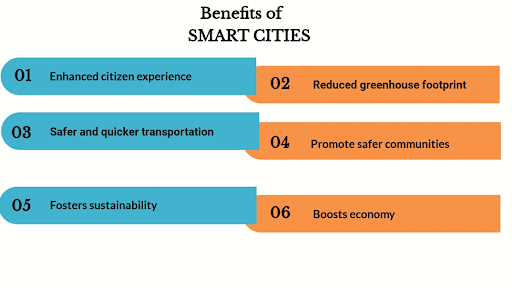Introduction
The concept of smart cities has transformed from a futuristic vision to a tangible reality, with cities worldwide embracing advanced technologies to address urban challenges and improve quality of life for residents. At the heart of this transformation are innovative solutions powered by IoT sensors, data analytics, and artificial intelligence, enabling cities to become more efficient, sustainable, and resilient. In this blog, we delve into the evolution of smart cities, exploring the benefits, advantages, and transformative potential of these technological advancements.
Advantages:
Enhanced Efficiency: Smart cities optimize resource utilization and service delivery through real-time data monitoring and analytics. By intelligently managing energy, water, and transportation systems, smart cities minimize waste and maximize efficiency, leading to cost savings and environmental benefits.
Sustainable Development: With a focus on sustainability, smart cities prioritize eco-friendly practices and renewable energy sources. By integrating green infrastructure, such as solar panels and green roofs, smart cities reduce carbon emissions, improve air quality, and mitigate the effects of climate change.
Improved Quality of Life: Smart cities prioritize the well-being of residents by enhancing public safety, healthcare access, and social services. Through smart surveillance systems, emergency response networks, and telemedicine platforms, smart cities ensure faster emergency assistance and better healthcare outcomes.
Economic Growth: The adoption of smart technologies drives economic growth by attracting investment, fostering innovation, and creating new job opportunities. Smart cities stimulate entrepreneurship, support digital industries, and cultivate a vibrant ecosystem for startups and businesses.
Citizen Engagement: Smart cities empower citizens to actively participate in decision-making processes and community initiatives. Through digital platforms and mobile apps, residents can provide feedback, access information, and collaborate with local authorities to co-create solutions for urban challenges.

Types of Smart City Technologies:
IoT Sensors and Connectivity: IoT sensors collect data from various urban assets, including infrastructure, utilities, and transportation systems, enabling real-time monitoring and analysis for informed decision-making.
Urban Mobility Solutions: Smart cities deploy intelligent transportation systems, including smart traffic lights, autonomous vehicles, and bike-sharing programs, to optimize traffic flow, reduce congestion, and improve mobility options for residents.
Sustainable Infrastructure: Smart cities invest in sustainable infrastructure projects, such as renewable energy installations, waste management systems, and green buildings, to minimize environmental impact and promote long-term sustainability.
Digital Governance Platforms: Smart cities leverage digital governance platforms to streamline administrative processes, enhance transparency, and facilitate citizen engagement in civic affairs and policy-making.
Data Analytics and AI: Smart cities harness the power of data analytics and artificial intelligence to derive insights, predict trends, and optimize urban operations across various domains, including energy management, public safety, and environmental sustainability.

Benefits:
Environmental Conservation and Sustainability: Smart cities prioritize environmental conservation and sustainability by implementing green infrastructure, renewable energy solutions, and efficient waste management systems. These initiatives reduce carbon emissions, mitigate the impact of climate change, and preserve natural resources for future generations.
Economic Growth and Job Creation: The development of smart infrastructure, digital industries, and innovation hubs within smart cities stimulates economic growth and creates new job opportunities. Investment in technology-driven initiatives fosters entrepreneurship, attracts talent, and strengthens the local economy, driving prosperity and competitiveness.
Improved Health and Well-being: Smart cities promote public health and well-being by providing access to healthcare services, recreational spaces, and wellness programs. Through data-driven insights and health monitoring technologies, cities can address public health challenges, encourage active lifestyles, and improve overall quality of life for residents.
Enhanced Connectivity and Accessibility: Smart cities prioritize connectivity and accessibility, ensuring that residents have seamless access to digital services, public transportation, and community resources. High-speed internet connectivity, smart transportation networks, and inclusive urban design facilitate social inclusion, mobility, and equal access to opportunities for all citizens.
Resilience and Disaster Preparedness: Smart cities enhance resilience and disaster preparedness through advanced risk assessment, early warning systems, and adaptive infrastructure planning. By leveraging data analytics and predictive modeling, cities can anticipate and mitigate the impact of natural disasters, minimize disruptions, and ensure the safety and well-being of residents during emergencies.

Conclusion
In conclusion, the evolution of smart cities represents a paradigm shift in urban development, driven by technological innovation, sustainability, and citizen engagement. By harnessing the benefits of advanced technologies and embracing a holistic approach to urban planning, smart cities have the potential to address complex urban challenges and create more resilient, inclusive, and sustainable communities. As cities continue to evolve and adapt to the digital age, the journey towards smarter, more livable cities will be defined by collaboration, innovation, and a shared vision for a better future.
